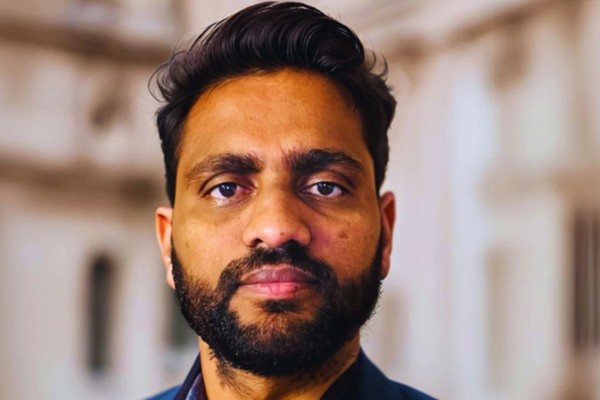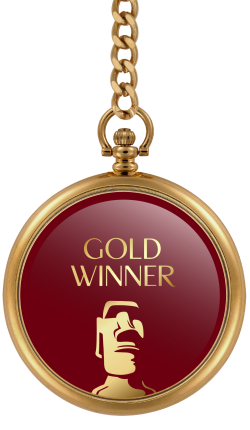
Interview
Ramesh Pingili
United States
Ramesh Pingili is a technology leader specializing in enterprise automation, AI, and digital transformation, with a track record of modernizing systems and streamlining operations for global clients including Citi Group, Cigna, and Verizon. As a Pega Tech Lead at ItechUS Inc., he delivers scalable, human-centered solutions across healthcare, finance, and government sectors, driven by a passion for impact, collaboration, and purposeful innovation.
1 Please provide us with a brief bio of yourself.
I’m Ramesh Pingili, a technology leader specializing in enterprise automation and digital transformation. As a Pega Tech Lead at ItechUS Inc., I work with global organizations to streamline complex processes, modernize legacy systems, and deliver scalable solutions that drive measurable outcomes. With a focus on AI, RPA, and intelligent workflow orchestration, I’ve led transformative projects across healthcare, finance, and government sectors. My work is driven by a passion for solving real-world challenges through technology that is both robust and human-centered. I’ve had the privilege of collaborating with industry leaders like Citi Group, Cigna, and Verizon—bringing innovation to life through secure, adaptive, and future-ready systems.
2 What is your role in the company?
I serve as a Pega Tech Lead at ItechUS Inc., where I lead the design, development, and implementation of enterprise automation solutions for large-scale clients across industries like finance, healthcare, and government. In my role, I’m responsible for architecting intelligent workflows, integrating systems across global operations, and ensuring that every solution is scalable, secure, and aligned with business objectives. I also collaborate closely with cross-functional teams and client stakeholders to deliver digital transformation projects that simplify operations and drive measurable impact.
3 Please tell us more about your organization.
I work with ItechUS Inc., a technology consulting firm that partners with large enterprises to lead digital transformation through cutting-edge solutions. The company specializes in enterprise architecture, low-code platforms, automation technologies, and cloud services. At ItechUS, I serve as a Pega Tech Lead and drive high-impact projects in areas such as global compliance, process orchestration, and customer experience. The firm’s commitment to innovation and agility has enabled me to lead solutions that not only meet business goals but also set new standards in operational efficiency.
4 Describe the industry your organization is specialized in, as well as its main characteristics.
ItechUS Inc. operates in the enterprise IT services and consulting industry, specializing in digital transformation, workflow automation, and system integration. The company partners with Fortune 500 clients and public sector organizations to help them modernize legacy systems, adopt emerging technologies, and streamline business processes through low-code platforms and intelligent automation. What sets the industry apart is its fast-paced nature and its demand for scalable, secure, and highly adaptive solutions. Clients in sectors like finance, healthcare, and government require not only technical innovation, but also strict compliance, real-time data management, and global scalability. At ItechUS, we stay ahead by aligning our solutions with business goals while integrating AI, RPA, and cloud-native architectures into every project.
5 Congratulations! As the winner of the TITAN Business Awards, what does it mean for you and your team to receive this distinction?
Thank you so much—it’s truly an honor. Winning the TITAN Business Awards is a powerful validation of the vision, effort, and collaboration that went into this innovation. For me personally, it reaffirms my commitment to building solutions that solve real enterprise challenges and create meaningful impact at scale. For our team, this recognition is deeply rewarding. It highlights the value of cross-functional collaboration, strategic thinking, and relentless execution. From system architects to business analysts and client stakeholders, everyone played a role in bringing this transformation to life. More than anything, this award reinforces that we're on the right path—driving innovation that matters, not just in terms of technology, but in the way it improves operations, compliance, and customer experience across the organization.
6 How has winning an international award help promote your organization?
Winning the TITAN Business Awards has significantly elevated the visibility of our work—not just within the organization, but also across the industry. It showcases our ability to deliver innovation that meets global standards and drives meaningful results in complex, high-stakes environments. This recognition reinforces our credibility with both current and prospective clients, highlighting our expertise in AI, automation, and enterprise integration. It also boosts team morale, validating the effort we put into building smart, scalable, and secure solutions. From a broader perspective, it positions ItechUS Inc. as a trusted innovation partner—one that’s not only technically strong but also deeply committed to business transformation that makes a real difference.
7 What are the challenges of developing / marketing your winning entry(ies)?
One of the biggest challenges in developing this solution was integrating multiple legacy systems across global regions—each with its own rules, workflows, and compliance requirements. Designing an automation framework that could scale across different countries while staying secure and compliant required a deep understanding of both technology and business operations. Another challenge was managing change across global teams. Introducing automation meant rethinking long-standing manual processes, which naturally came with some resistance. To address this, we focused on transparent communication, user-friendly design, and delivering early wins that built trust and momentum. From a marketing perspective, the challenge was simplifying a highly technical solution into a compelling narrative that stakeholders could relate to. We had to clearly articulate not just what the system did, but how it added value—by improving compliance, accelerating turnaround times, and enabling smarter decision-making. Ultimately, overcoming these challenges made the solution more resilient and impactful—and helped us demonstrate the true business value of innovation.
8 As a business owner, please tell us more about your ideation process.
My ideation process always starts with listening to the pain points—understanding where bottlenecks exist, what users are struggling with, and how inefficiencies are impacting the business. Whether it's regulatory delays, manual redundancies, or system silos, I look for patterns that signal deeper opportunities for transformation. Once the core problem is clear, I focus on aligning the solution with business goals, user experience, and technical feasibility. I believe in designing from the ground up—but always with scalability, compliance, and integration in mind. I also involve stakeholders early, bringing in voices from operations, IT, compliance, and end-users. This collaborative input helps refine the solution before a single line of code is written. Prototyping, testing, and feedback loops are essential parts of the process. Innovation doesn’t happen in isolation—it evolves through iteration, shared vision, and a strong focus on real-world impact.
9 What is your own definition of a successful team / organization / business?
To me, a successful team or organization is one that solves meaningful problems, adapts quickly, and grows together. It’s not just about delivering results—it’s about building a culture where innovation is encouraged, collaboration is natural, and every member feels empowered to contribute. A successful team values both performance and people, balancing technical excellence with empathy and shared ownership. From a business perspective, success means staying focused on the customer while continuously evolving to meet new challenges. It’s about aligning technology with strategy, being resilient in the face of change, and leading with purpose—not just profit. Ultimately, success is measured by impact. When a team or organization consistently creates value that improves systems, experiences, and outcomes—that’s success in its truest form.
10 What led you / your organization to become successful within the industry you are currently in?
Our success has been rooted in a clear commitment to solving real-world problems through intelligent, scalable technology. We focus not just on delivering what’s requested, but on uncovering what’s truly needed—bridging gaps between business goals, user needs, and technology capabilities. A major factor has been our ability to stay ahead of industry trends, especially in AI, automation, and enterprise integration. We don’t just adopt tools—we design ecosystems that adapt, scale, and evolve with the business. What also sets us apart is the way we collaborate. We work closely with clients as partners, not vendors—bringing transparency, agility, and accountability into every stage of delivery. That trust has led to long-term relationships and repeat success. At the end of the day, it's the blend of technical expertise, strategic thinking, and a people-first mindset that has allowed us to consistently deliver impact and earn recognition in a highly competitive space.
11 How has the country, you are based in, helped move your industry forward?
Being based in the United States has provided an incredible foundation for innovation in the enterprise technology and automation space. The country fosters a strong culture of technological advancement, entrepreneurial spirit, and cross-industry collaboration, which has accelerated growth in AI, RPA, and digital transformation. Access to a diverse talent pool, cutting-edge research, and a competitive ecosystem of startups and enterprise tech leaders has created an environment where innovation thrives. Additionally, U.S.-based companies—especially in healthcare, finance, and government—are increasingly focused on modernization and digital agility, which has driven the demand for intelligent automation solutions. The regulatory frameworks and emphasis on compliance also push us to build solutions that are not only efficient, but secure, scalable, and responsible. This balance of innovation and governance has shaped how we approach problem-solving and deliver enterprise-grade solutions.
12 What have you found to be a hindering factor, for your business, during the entire course of the pandemic, and how did you overcome that hinderance?
One of the biggest challenges during the pandemic was the sudden shift to fully remote collaboration—especially for complex enterprise transformation projects that traditionally relied on in-person workshops, whiteboarding sessions, and real-time decision-making. It also introduced delays in stakeholder alignment and onboarding, particularly in sectors like healthcare and government, where teams were simultaneously adapting to remote operations while managing critical services. To overcome this, we leaned into cloud-native tools, agile frameworks, and tighter communication loops. We restructured our delivery model to be more modular and outcome-focused, allowing us to keep momentum even when timelines shifted. Virtual design sessions, proactive check-ins, and transparent reporting became the new norm—and in many ways, made our teams even more aligned and efficient over time. Ultimately, the pandemic reinforced the value of flexibility, empathy, and innovation—and helped us build more resilient solutions and teams in the process.
13 What are the current trends in the business industry that you are most excited about?
One of the most exciting trends is the rise of hyperautomation and intelligent orchestration—where AI, RPA, and low-code platforms come together to automate not just tasks, but entire business processes across departments and regions. It’s redefining how organizations think about scalability and agility. I’m also energized by the growing focus on explainable and ethical AI. As automation becomes more embedded in decision-making, there’s a real shift toward transparency, governance, and human-centered design—which is essential for long-term trust and adoption. Another major trend is the push toward composable enterprise architecture—building systems like building blocks that are flexible, modular, and future-ready. This opens up massive opportunities for faster innovation and better alignment between business and IT. These trends aren't just technological—they're strategic. And they’re helping businesses move from being process-driven to being intelligence-driven, which is where real transformation begins.
14 What resources would you recommend to someone who is searching to improve their business prospects and organizational success?
I’d recommend starting with resources that help build both strategic thinking and technical adaptability. For strategy and leadership, books like “Good to Great” by Jim Collins or “The Lean Startup” by Eric Ries offer valuable frameworks for sustainable growth and innovation. They teach you how to stay focused, measure what matters, and adapt quickly without losing sight of long-term goals. On the technology and operations side, platforms like Gartner, McKinsey Insights, and MIT Sloan Management Review are great for staying ahead of industry trends in AI, automation, and digital transformation. I also believe in community-driven learning—whether it’s participating in industry forums, webinars, LinkedIn groups, or even local meetups. Hearing real-world stories and challenges from others often sparks some of the best ideas. And finally—don’t underestimate the value of mentorship and collaboration. Surround yourself with people who challenge your thinking, share their experiences, and support your journey. That human connection is often the most powerful resource of all.
15 Where do you see the evolution of the overall business industry in the next 5-10 years?
In the next 5 to 10 years, I see the business industry becoming more intelligent, interconnected, and purpose-driven. Businesses will shift from traditional operational models to ones built on real-time data, AI-powered insights, and adaptive workflows. Decision-making will become faster and more predictive, driven by systems that learn and evolve alongside the organization. There will also be a stronger emphasis on digital resilience and ethical innovation—ensuring that transformation is not just scalable, but also secure, transparent, and aligned with societal impact. The rise of composable business models, where organizations build flexible, modular capabilities that can be rapidly assembled or reconfigured, will redefine how companies compete and collaborate. And most importantly, the future will belong to businesses that can blend technology with empathy—those that understand people just as much as they understand systems. That’s where I believe the true edge will lie.
16 Who inspired you in your life, and why?
Professionally, I’ve been inspired by leaders who blend vision with empathy—people who don’t just innovate for the sake of technology, but to genuinely solve problems and uplift others. Their ability to lead with both purpose and precision has shaped how I approach my own work, and how I hope to lead and inspire others in return.
17 What is your key to success? Any parting words of wisdom?
For me, the key to success has always been a balance of purpose, persistence, and people. Purpose keeps you focused—when you know why you're doing something, it's easier to navigate challenges and stay motivated. Persistence helps you push through the tough times, especially when things don’t go as planned. And people—mentors, collaborators, clients, and teams—remind you that success is never a solo journey. My parting advice would be: never stop learning, stay humble, and build with impact in mind. Technology will keep evolving, but the drive to make a meaningful difference will always set you apart. If you stay curious, lead with empathy, and commit to doing the work—success will follow, often in ways you didn’t expect.
18 Which THREE (3) Entrepreneurs / Organizations would you nominate to participate in the TITAN Business Awards?
Kishore Khandavalli – CEO, ItechUS Inc. Kishore is a visionary entrepreneur whose leadership has consistently driven innovation in enterprise IT solutions. Under his guidance, ItechUS has delivered transformative outcomes for Fortune 500 clients, built a strong culture of technological excellence, and expanded globally with a focus on strategic, customer-centric growth. Satya Nadella – CEO, Microsoft Satya has reshaped Microsoft into a cloud-first, AI-driven enterprise by embracing empathy, collaboration, and innovation. His leadership has influenced how businesses worldwide adopt and scale intelligent technologies. UiPath As a global leader in Robotic Process Automation (RPA), UiPath continues to revolutionize how businesses automate and optimize operations. Their commitment to innovation, ease of access, and community development makes them a model organization in the automation space.

